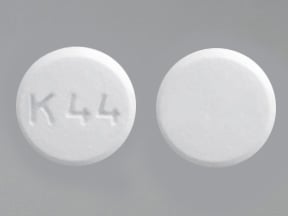
Diethylpropion Coupons & Savings Card – Discount Prices from $17.50
Diethylpropion is a medication designed to aid weight loss in individuals struggling with obesity. It is intended to be used in conjunction with a doctor-approved, reduced-calorie diet, regular exercise, and behavioral changes. This medication is particularly beneficial for those who have not achieved sufficient weight loss through diet and exercise alone. By losing weight and maintaining it, users can potentially lower the health risks associated with obesity, such as heart disease, diabetes, and high blood pressure.
Diethylpropion is classified as a sympathomimetic amine, which means it has stimulant-like properties. Its primary function is to suppress appetite, likely by influencing specific areas of the brain and possibly increasing the body's energy expenditure. It is important to note that Diethylpropion is recommended for short-term use due to potential risks. Always consult with healthcare professionals before starting this medication to ensure it is safe and effective for your personal health needs.
Our coupons are free to use. Before paying, show the pharmacist your Diethylpropion savings card to get your free discount. Use our filters below to edit the prescription box to match your needs. The Diethylpropion prices will update based on your prescription needs. Above our Diethylpropion coupons, you can change your location to see pharmacy prices and costs in other areas. We're here to help you buy Diethylpropion at the lowest price with our prescription discount card.
My prescription
Edit
25MG, Diethylpropion (90 Tablets)
Select pharmacy

CVS
$31.34
COUPON PRICE
Walgreens
$17.50
COUPON PRICE
Walmart
$28.19
COUPON PRICE
Albertsons
$29.32
COUPON PRICEDiethylpropion savings card
Show this card to your pharmacist
Walgreens
$17.50
BIN
ID
PCN
GRP
015995
LHKPV488256
GDC
DR33
Powered by
Diethylpropion is a medication designed to aid weight loss in individuals struggling with obesity. It is intended to be used in conjunction with a doctor-approved, reduced-calorie diet, regular exercise, and behavioral changes. This medication is particularly beneficial for those who have not achieved sufficient weight loss through diet and exercise alone. By losing weight and maintaining it, users can potentially lower the health risks associated with obesity, such as heart disease, diabetes, and high blood pressure.
Diethylpropion is classified as a sympathomimetic amine, which means it has stimulant-like properties. Its primary function is to suppress appetite, likely by influencing specific areas of the brain and possibly increasing the body's energy expenditure. It is important to note that Diethylpropion is recommended for short-term use due to potential risks. Always consult with healthcare professionals before starting this medication to ensure it is safe and effective for your personal health needs.
Our coupons are free to use. Before paying, show the pharmacist your Diethylpropion savings card to get your free discount. Use our filters below to edit the prescription box to match your needs. The Diethylpropion prices will update based on your prescription needs. Above our Diethylpropion coupons, you can change your location to see pharmacy prices and costs in other areas. We're here to help you buy Diethylpropion at the lowest price with our prescription discount card.
Related sympathomimetics prescriptions
coupons from$27.69Save 24%
coupons from$28.64Save 78%
coupons from$5.35Save 79%
More prescriptions for weight loss
coupons from$5.35Save 89%
coupons from$1265.19Save 62%
coupons from$37.84Save 51%
coupons from$37.93Save 67%
coupons from$1009.06Save 62%
coupons from$460.23Save 59%
coupons from$31.58Save 77%
coupons from$37.84Save 51%
Related sympathomimetics prescriptions
Lomaira Save 24%coupons from $27.69
Benzphetamine Save 78%coupons from $28.64
Phentermine Hcl Save 79%coupons from $5.35
More prescriptions for weight loss
Phentermine Hcl Save 89%coupons from $5.35
Wegovy Save 62%coupons from $1265.19
Evekeo Save 51%coupons from $37.84
Qsymia Save 67%coupons from $37.93
Zepbound Save 62%coupons from $1009.06
Dyanavel Xr Save 59%coupons from $460.23
Diethylpropion ER Save 77%coupons from $31.58
Amphetamine Sulfate Save 51%coupons from $37.84
Diethylpropion dosage forms
Use our Diethylpropion 25MG coupon with prices from $28.19 for 90 Tablets. You can also use our Diethylpropion 25MG coupon with prices from $3.99 for 7 Tablets. We have a Diethylpropion 25MG coupon with prices from $5.48 for 14 Tablets. You can use our Diethylpropion 25MG coupon with prices from $6.98 for 21 Tablets.
Dosage Quantity Price from Per unit 25MG 90 Tablets $28.19 $0.31 25MG 7 Tablets $3.99 $0.57 25MG 14 Tablets $5.48 $0.39 25MG 21 Tablets $6.98 $0.33 25MG 28 Tablets $8.47 $0.30 25MG 30 Tablets $8.90 $0.30 25MG 56 Tablets $14.44 $0.26 25MG 60 Tablets $15.29 $0.26 25MG 100 Tablets $30.32 $0.30 25MG 180 Tablets $42.68 $0.24
| Dosage | Quantity | Price from | Per unit |
|---|---|---|---|
| 25MG | 90 Tablets | $28.19 | $0.31 |
| 25MG | 7 Tablets | $3.99 | $0.57 |
| 25MG | 14 Tablets | $5.48 | $0.39 |
| 25MG | 21 Tablets | $6.98 | $0.33 |
| 25MG | 28 Tablets | $8.47 | $0.30 |
| 25MG | 30 Tablets | $8.90 | $0.30 |
| 25MG | 56 Tablets | $14.44 | $0.26 |
| 25MG | 60 Tablets | $15.29 | $0.26 |
| 25MG | 100 Tablets | $30.32 | $0.30 |
| 25MG | 180 Tablets | $42.68 | $0.24 |
